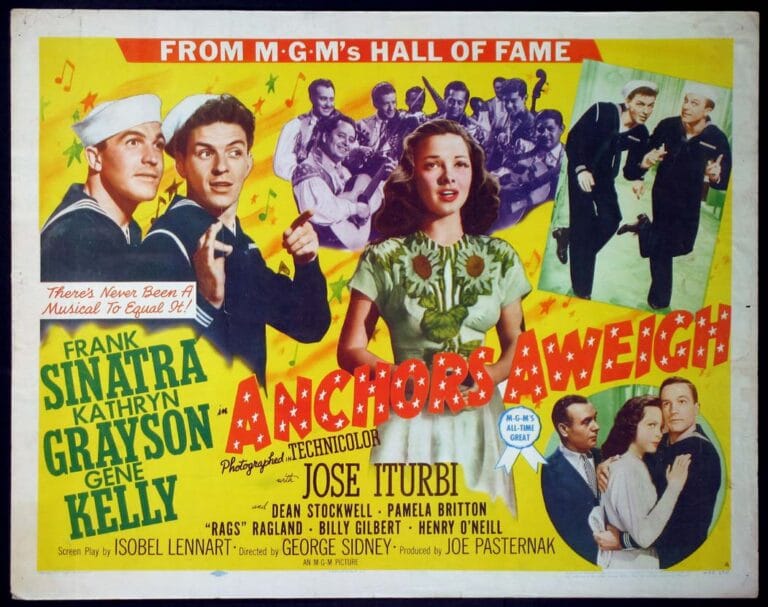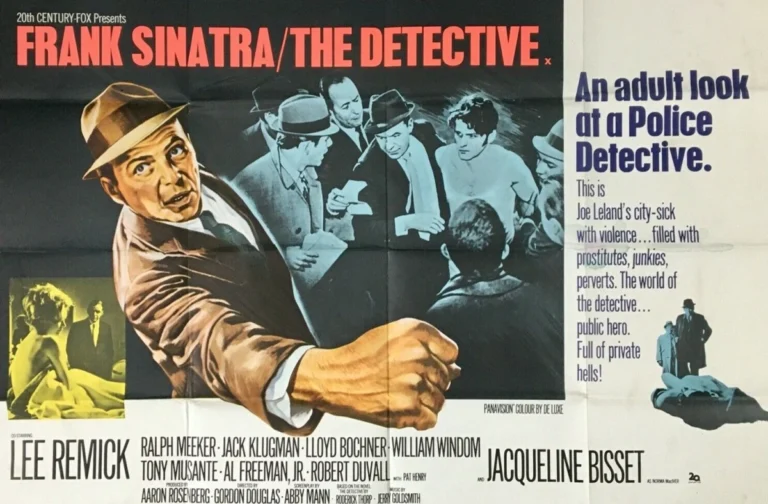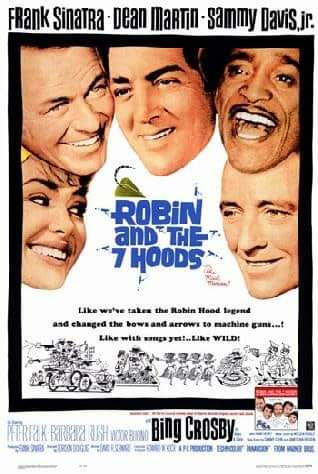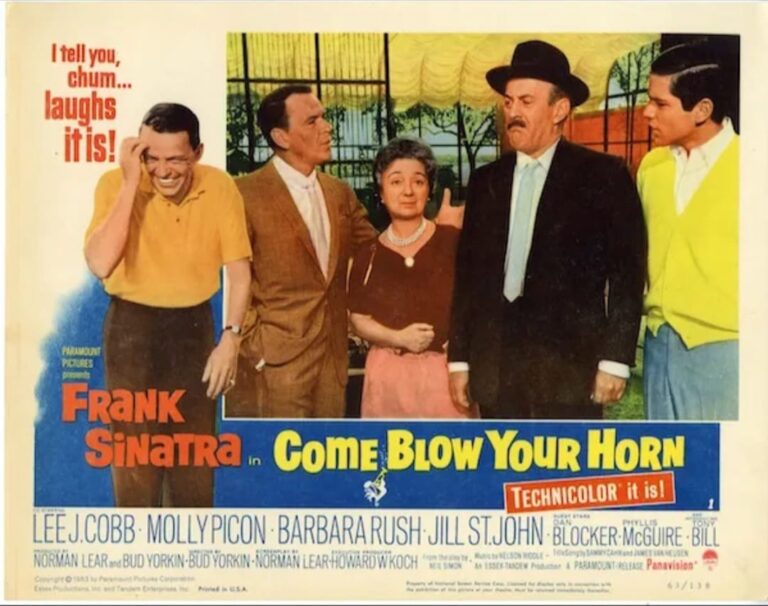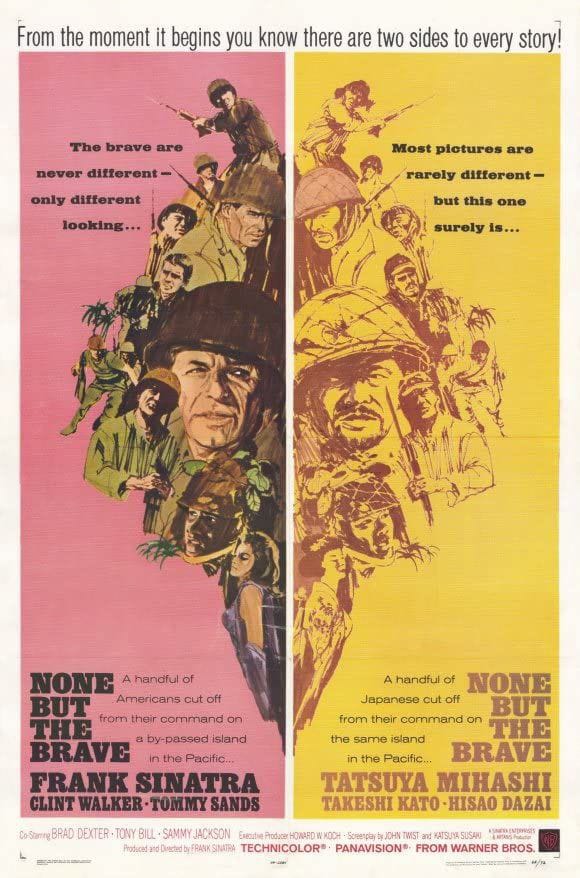
“NONE BUT THE BRAVE” (1965)
By Mahnuel Muñoz
NONE BUT THE BRAVE (1965)
John Dryden (1631-1700) was the poet and playwright who dominated the literary life of Restoration England, to the point that that time became known as the Dryden Era. There is an important parallel with the influence of Frank Sinatra on the popular culture of his century and its environment, and therefore it seems very appropriate that the title for the only film directed by Sinatra, “None But The Brave” They were brave”), was taken from a poem by Dryden, “Alexander’s Feast”:
“None but the brave/deserve the fair.” (Only the brave/deserve the beautiful). It is also striking that these verses so accurately summarize Sinatra’s life and professional career.
On April 27, 1964, Frank Sinatra flies to Hawaii to begin filming what is also the first co-production in history between the United States and Japan. It is a war film, a genre to which Sinatra frequently resorted, but with a marked anti-war and conciliatory spirit.
The action takes place on a Pacific island occupied by a company of Japanese soldiers who maintain their daily discipline while they build a small ship with which they hope to reach occupied territory. An American plane, damaged by a Japanese soldier, lands on the island. At first there is a fight between the two sides, but they later agree to a truce, which involves the agreement that if either group must take part in the war again, the fight would resume immediately. The fight begins again despite the fact that both parties had established a certain friendly relationship.
Sinatra plays a supporting role here in favor of Clint Walker, who together with the Japanese actor Tatsuya Mihashi are the main protagonists. His character is a doctor who loves whiskey and has a dry sense of humor, which makes us think of Sinatra’s public role, and is only important in the scene in which he must save the life of a badly injured Japanese soldier. However, it is a moment of capital importance for the development of history. As a director, Sinatra does not exhibit mastery, but he does exhibit quite a bit of skill, controlling the frequent action scenes and maintaining good pacing.
In the mid-1960s, Frank Sinatra, with a long film career under his belt, did not need to take risks the way he does, directing a war film that questions the value of war, and that may offend many. of his lifelong followers, at this point, mature men and women of conservative disposition. With public opinion divided because of the conflict in Vietnam, Frank Sinatra tells us that war is archaic and makes brotherhood among human beings impossible; It is not something new, however, in Sinatra’s philosophy; His war films always contain criticism of the fact of war and even of the military institution itself.
Reviews of the film at the time were divided. There were those who gave a lot of value to Sinatra’s decision to go in front of and behind the cameras. Others, however, said that the film did not tell anything new, and that Sinatra failed to delve psychologically and philosophically into the conflicts of the main characters. The truth is that, through several flashbacks, we witness that both the Japanese and the American boss have very similar personal problems, and we can empathize with both in the midst of the heat of battle. Here Frank is four decades ahead of the project, with identical intentions, “Letters from Iwo Jima”/”Flags of Our Fathers” by Clint Eastwood. “I was trying to show that,” said Frank, “when men do not have to fight, there is common interest among them.” I would add that the film makes us wonder if men really “have” to fight. It is a very valuable reflection in these turbulent times in which we are once again on the brink of the abyss.
CURIOSITIES
-The author of the soundtrack is John Williams, one of the most famous film composers, with works such as film history music such as “Jaws”, “ET: The Extra-Terrestrial”, “Superman”, the film saga of “Star Wars”, “Indiana Jones”, “Jurassic Park”, “Schindler’s List”, “Memoirs of a Geisha”, “Harry Potter” and “Artificial Intelligence”.
-The special effects director was Eiji Tsuburaya, in charge of visual effects on numerous war films, the original Godzilla in 1954 and many of its sequels.
-Jimmy Griffin (who plays soldier Dexter) formed the group Bread in the 1970s, along with singer David Gates, with a multitude of hits, including “If”, recorded by Sinatra himself for the album “Some “Nice Things I’ve Missed” (1974)

